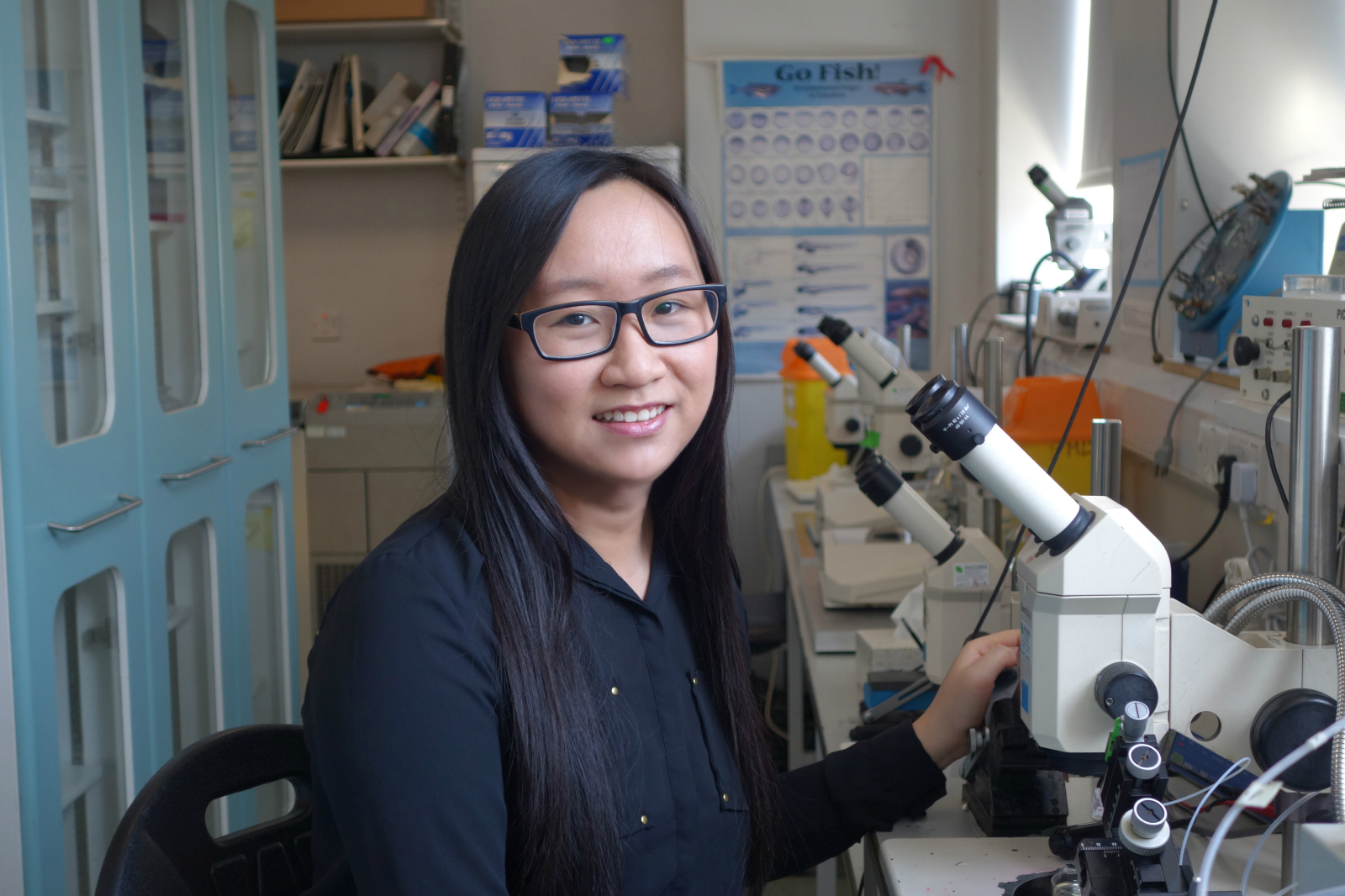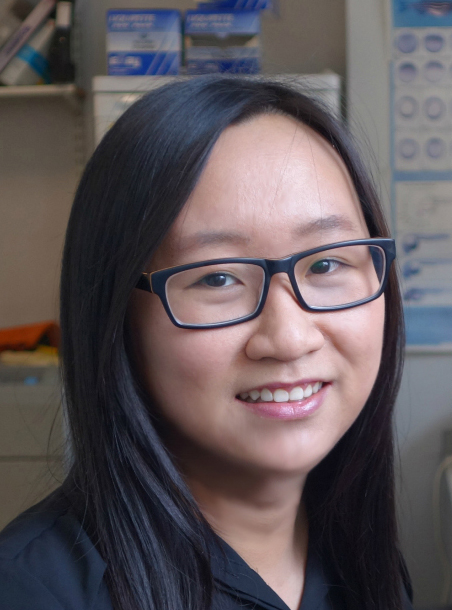
Julie Qiaojin Lin's research investigates the degeneration and death of motor neurons.
Julie Qiaojin Lin [2013] is just over two years into her PhD in Physiology, Development and Neuroscience and has already had a major paper on her research into motor neurone disease published in a peer review journal. In November, she was one of the co-authors of a paper published in the journal Neuron. It investigated the role of the RNA-binding protein FUS in the degeneration and death of motor neurons. Normally the FUS protein exists in lipid droplets, but in patients with inherited motor neurone disease it forms abnormal masses which are detrimental to neurons.
Julie is also working on a technique using a bright fluorescent protein, Venus, to monitor protein synthesis in a cell. This is particularly useful for studies in neurons with a distinctive cell shape. For this she experiments on frogs as she needs to study retinal ganglion cell neurons which connect the eye to the brain and frog neurons are useful for studying axons as a specialised neuron compartment.
Early interests
Julie was born in Guangdong province in China. At secondary school, where she was a weekly boarder because her parents had to work late and the school was not near her home, she joined the robotics team and built a robot that could play football. But it was biology that she loved and she joined the Biology Olympiad class which led to her team taking part in several competitions.
Julie sat China’s highly competitive national exams for university at the end of secondary school and decided to go to university in Hong Kong and enrolled at the Hong Kong University of Science and Technology. Because biological research is still a developing field in China, she was looking to train at one of the world-class research institutes abroad so that she could work with scientists from all over the world.
Hong Kong is only a few hours drive from Guangzhou and Hong Kong and Guangzhou share the same culture and language – Cantonese. Her university provided a great transition between the Asian and Western education system: lectures are delivered in English and the course design is adapted from the North American system, but there are lots of Chinese elements in the university culture and extracurricular activities.
During her third year Julie did a semester exchange at the University of California Berkeley and came to the University of Cambridge for the Cambridge Science Summer School (CSSS) with the School of Biological Science. There she did her first research project with the Brand group at the Gurdon Institute. The summer school, including talks by Cambridge entrepreneurs and research scientists in various areas, as well as seminars on improving research skills, encouraged her to apply to Cambridge. It was also there she found out about the Gates Cambridge Scholarship.
Cambridge
She applied for the PhD programme at Cambridge as soon as she returned to Hong Kong and was accepted on condition she secured funding. At the Gates Cambridge interview she was asked about her extracurricular activities, such as her voluntary work on a butterfly conservation research project. Julie is interested in ecology and had been doing a monthly survey of changes in the butterfly population in Hong Kong over the two years before her interview. She also spoke about her involvement in community work, going into local primary schools to demonstrate interesting science experiments and her role in a wetland research project and in iGEM, an international synthetic biology competition. This involved engineering bacteria to fight against Streptococcus infection. Her team presented their work at an event at MIT.
After the interview, Julie was offered a Gates Cambridge Scholarship. Originally she had planned to investigate how neurons navigate their way in human brains without making wrong turns with a view to curing newborn babies with neural developmental defects and understanding the brain. The topic of her PhD project, supervised by Professor Christine Holt, has been broadened since she joined the group due to the collaborative cross-disciplinary nature of research at Cambridge. She has, for instance, worked with the Kaminski group at the Department of Chemical Engineering and has been able to benefit from their expertise in microscopy for her work on single-molecule imaging of protein translation. Her work on ALS began with a collaboration between multiple international groups led by Professor Peter St. George-Hyslop at the Cambridge Institute for Medical Research.
She says being a Gates Cambridge Scholar has also given her valuable opportunities to meet peers from different disciplines. She hopes to continue her research as a postdoctoral scholar at Cambridge or in North America.

Qiaojin Lin
- Alumni
- China
- 2013 PhD Physiology, Development and and Neuroscience
- Christ's College
Growing up in Guangzhou, a city in southern China, I have spent my four-year University life in Hong Kong. What I benefit most from my undergraduate education is developing my passion towards neuroscience through relevant courses and a project studying how neurons sort out the proteins they produced. I am very excited about starting my PhD study at Cambridge and discovering a world new to me. The project I will engage in at Cambridge with Professor Christine Holt investigates how neurons navigate their way in our brain, focusing on the visual system, without making wrong turns or bumping into each other. This study is useful in curing newborn babies with neural developmental defect and to understand our brain organizations. I certainly hope one day my scientific discoveries can help people in bigger ways. I am looking forward to joining the Cambridge community and meet with all these outstanding Scholars.
Previous Education
Hong Kong University of Science & Technology Bachelor of Science in Biology 2013












